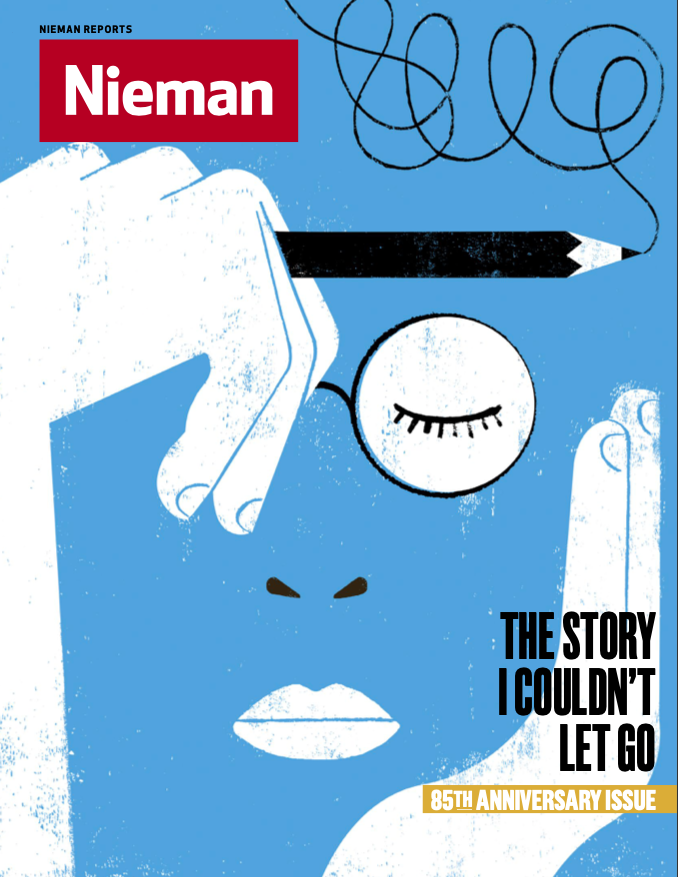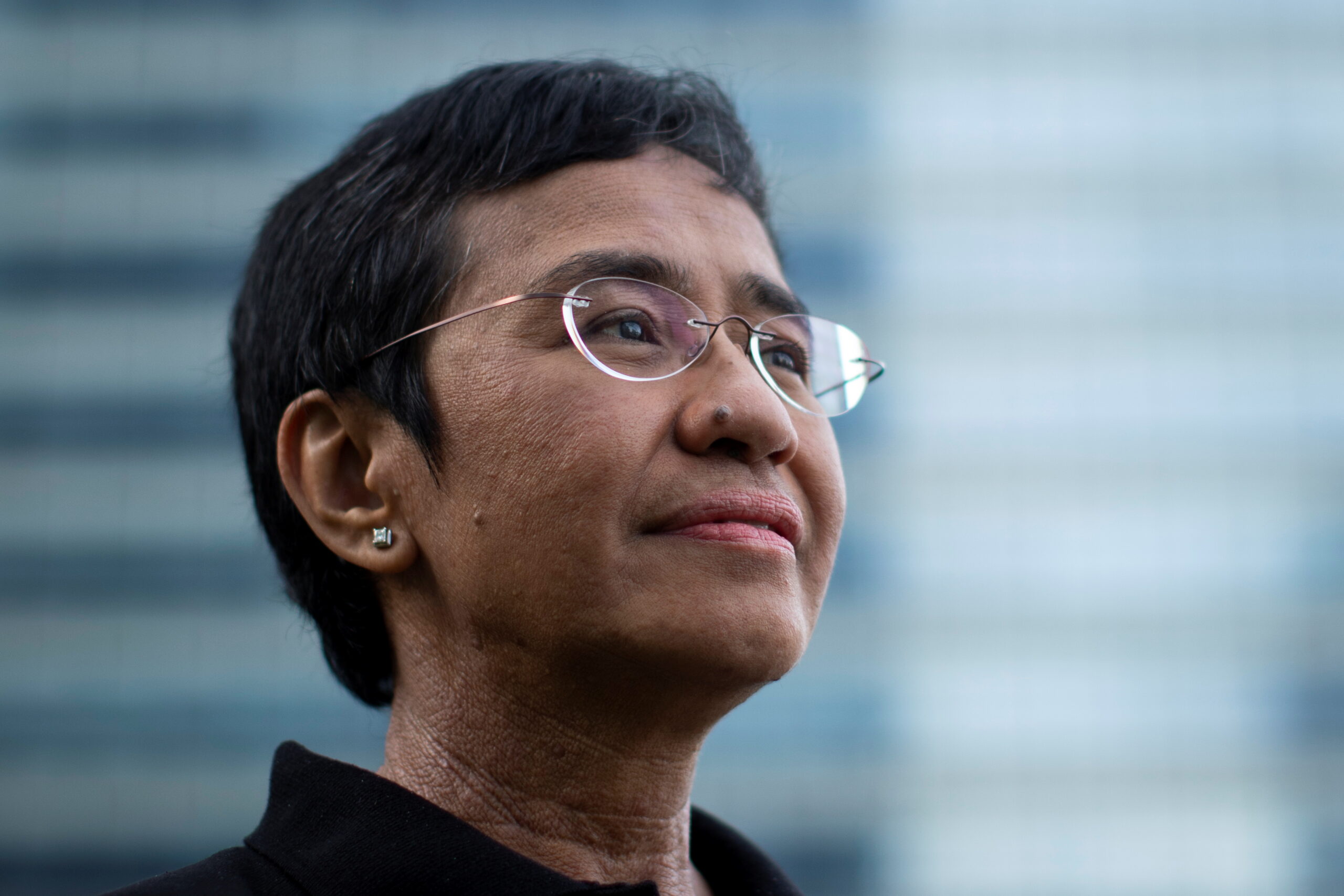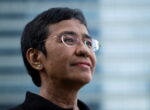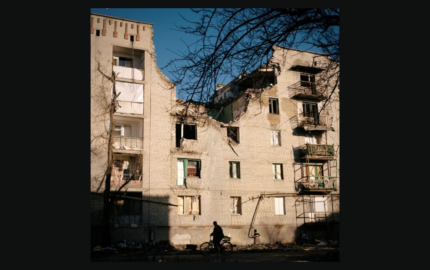
“Stories stalk you. Stories beguile you. They bewitch you. It’s not easy to fend them off, even when you’ve vowed you will,” Susan Orlean writes in our Fall 2023 issue, which commemorates the Nieman Foundation’s 85th anniversary.
Over 400 Nieman alumni gathered at Lippmann House in October for the occasion, where during the reunion weekend, one event asked fellows to respond to a simple prompt: Tell us the story you couldn’t let go of.
Five of those stories, delivered live at the reunion, are featured in this issue. These stories have liberated low-income patients from hospital debt, landed a fellow in a Zimbabwean prison, delved into the inner workings of libraries, joined together two fellows in Ukraine, and chased down the circus of Alabama politics.
A reunion is a corrective, a response to a period of separation. Families, colleges, even countries reunite, often in celebration, sometimes in longing.
In the five years since the last Nieman Fellows reunion, the world has been torn by pandemic and war. Journalism had suffered too, weakened by record job cuts while called upon to cover events of epic dimension. Appetites for large gatherings had diminished. If we held another reunion, who would come?
But the question underestimated the rare nature of the Nieman community: the bonds that inspire and sustain, the knowledge that both your fears and faith in journalism's future are understood in this global fraternity. In the end, more than 400 of us from across 40 countries and seven decades of Nieman fellowship traveled to Cambridge to reunite — in celebration, yes, but also for reaffirmation that the work matters.
A fellow whose newsroom, like so many, is shrinking, emailed me after returning home. "This reunion came at just the right time," he wrote. "This has not been the easiest year ... but this past weekend reminded me why I do what I do and why it is so important to me that I continue to do it. I feel reinvigorated."
The email affirmed the foresight of Agnes Wahl Nieman, heir to a Milwaukee newspaper fortune, who 85 years ago assigned the largest portion of her estate to Harvard University "to promote and elevate the standards of journalism and educate persons deemed specially qualified for journalism."
The challenges these journalists now confront were eloquently articulated throughout the weekend and ranged from the existential to the dangerous. "Some important leaders are not advocates for the democratic project," Harvard Professor Archon Fung reminded us in a talk about polarization and assaults on democracy. In a somber reflection, New York Times Executive Editor Joseph Kahn said that worry over covering the wars in Ukraine and the Middle East "keeps me up at night." Of the reporting dangers in Gaza — where the war has become the deadliest for reporters since the Committee to Protect Journalists began documenting such fatalities three decades ago — "the level of risk is like nothing I've seen," Kahn said.
But an inescapable theme of the weekend was the persistence of journalists to find a way through. As during a fellowship year, inspiration came from other fellows, in conversations both private and public. At the end of the weekend, my Nieman colleague Ellen Tuttle observed that it was the "fellowship of the fellowship" that animated the reunion.
The five essays that follow in this issue of Nieman Reports were delivered live at the reunion, each a response to a simple prompt: Tell us the story you couldn't let go. One of those stories landed its writer in prison; another freed its subjects from crippling debt. All of them met Agnes Nieman's ambitious mandate to elevate the standards of journalism.
"The problem with being a writer is you're a writer," Nieman Fellow Susan Orlean, one of the storytellers, told us. "Stories stalk you. Stories beguile you. They bewitch you. It's not easy to fend them off, even when you've vowed you will."
Later, during a talk about the artificial intelligence revolution, Harvard Business School Professor Karim R. Lakhani polled the fellows. "Stand if you think ChatGPT will change journalism," he said, and most of us did. But when he asked who used the AI system every day, most took their seats.
"There is a gap," he observed, "between the knowing and the doing."
Mindful of Lakhani's lesson, I asked ChatGPT to tell me a story about a journalism fellows' reunion at Harvard. Here is an excerpt:
"As the night unfolded, the journalists found themselves drawn to the steps of Widener Library, where they had once sat as eager students. Beneath the soft glow of the lampposts, they shared stories of triumph and defeat, of the moments that had tested their resolve, and the stories that had changed the course of history.
The reunion concluded with a sense of renewed purpose and a commitment to the principles of journalistic excellence. The journalists departed Harvard with a shared understanding that, despite the challenges of the digital age, the essence of journalism lies in its ability to uncover truth, to give voice to the voiceless, and to hold power accountable.
As the alumni dispersed once again to the far reaches of the world, the spirit of the Harvard journalism reunion lingered, a testament to the enduring bonds forged in the pursuit of a free and informed press."
The depictions were cloying and cliched — though correct me if I missed the reminiscing under the soft glow of Widener Library lampposts. But they mimicked the romanticized tone that characterizes so many defenses of journalism. Attacks on the industry, cultural and legal, have required our response, but it can lean toward the vague and vainglorious.
A better reunion story was the one found in the Harvard Science Center with Nobel Peace Prize laureate Maria Ressa, CEO of Rappler in the Philippines and author of "How to Stand Up to a Dictator," her account of exposing an extrajudicial killing campaign by President Rodrigo Duterte's government. Her journalism attracted the enmity of Duterte and the full force of his retaliatory powers. She has been arrested, jailed, and targeted by government-coordinated social media attacks, including doxing and rape and death threats. Her pleas for intervention by tech firms were ignored.
"The battle is here, in your cell phones," she said. "It is a battle for integrity. It is a battle for values."
As she awaits the resolution of her legal cases and decisions about imprisonment, what gives her hope?
"Journalists," she said, and gestured toward the hundreds of Nieman Fellows. "How much will we suffer, but we continue to do our jobs. You have staked your life, your careers, your mission, your families, we all know the toll journalism takes. So guys, more power to you. We have to continue doing our jobs in far more dangerous times. I hope you're here ... We're still here, and we'll keep going."
That's the story of the reunion I can't let go.







